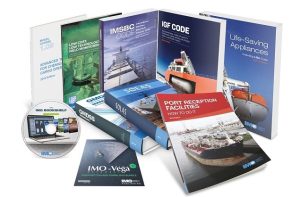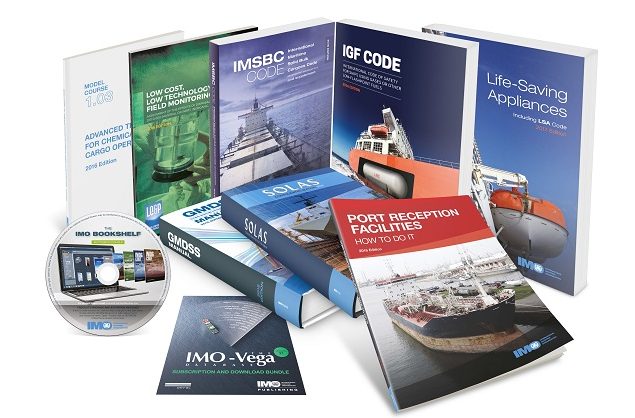The global maritime industry operates within a complex framework of international laws and regulations designed to ensure safety at sea, environmental protection, and the smooth conduct of maritime commerce. For navigation ship officers, understanding and adhering to these laws is paramount. At maritime academies and universities, Maritime Law and Regulations is a core subject, providing future officers with the knowledge they need to navigate the legal landscape of shipping. This article explores the key components of maritime law and regulations that officers study, including the International Maritime Organization (IMO), key conventions like SOLAS and MARPOL, collision regulations, and the role of flag and port state control.
The International Maritime Organization (IMO)
The International Maritime Organization (IMO) is the specialized agency of the United Nations responsible for regulating shipping. Established in 1948, the IMO has been instrumental in creating a comprehensive legal framework that governs the safety, security, and environmental impact of international shipping. The IMO’s regulations apply to all member states, and its conventions form the backbone of modern maritime law. For ship officers, understanding the structure, function, and key regulatory instruments of the IMO is essential to ensuring compliance with international standards.
Key IMO Conventions
Ship officers must familiarize themselves with the IMO’s primary conventions, which cover a wide range of safety, security, and environmental protection issues. These include the International Convention for the Safety of Life at Sea (SOLAS), the International Convention for the Prevention of Pollution from Ships (MARPOL), and the International Convention on Standards of Training, Certification, and Watchkeeping for Seafarers (STCW). Each of these conventions contains detailed regulations that officers must follow in their daily duties.

SOLAS: The Cornerstone of Maritime Safety
The International Convention for the Safety of Life at Sea (SOLAS) is recognized as the most essential international treaty concerning the safety of merchant ships. Initially adopted in 1914 following the Titanic disaster, SOLAS has been amended over the years to address new safety challenges in modern shipping, with the latest amendments focusing on issues such as cyber risk management and onboard training.
SOLAS establishes comprehensive safety standards across key areas, including ship design, construction, equipment, operational safety, and crew training and qualifications. The convention is structured into 14 chapters, each specifying requirements for different aspects of maritime safety. Here’s an overview of key chapters and their roles:
- Chapter I: General Provisions – Covers regulations for ship surveys and certification.
- Chapter II-1: Construction – Subdivision and Stability, Machinery, and Electrical Installations.
- Chapter II-2: Fire Protection, Fire Detection, and Fire Extinction – Details fire safety provisions.
- Chapter III: Life-saving Appliances and Arrangements – Specifies requirements for lifeboats, life rafts, and other life-saving appliances.
- Chapter IV: Radio Communications – Mandates GMDSS (Global Maritime Distress and Safety System) for ship communication.
- Chapter V: Safety of Navigation – Covers navigation safety requirements, including voyage planning and mandatory bridge equipment.
- Chapter VI: Carriage of Cargoes and Oil Fuels – Focuses on safe loading, unloading, and stowing of cargo.
- Chapter VII: Carriage of Dangerous Goods – Specifies requirements for transporting hazardous materials.
- Chapter VIII: Nuclear Ships – Provides safety standards for nuclear-powered ships.
- Chapter IX: Management for the Safe Operation of Ships – Integrates ISM Code requirements for ship operation and management.
- Chapter X: Safety Measures for High-Speed Craft.
- Chapter XI-1 & XI-2: Special Measures to Enhance Maritime Safety and Security.
- Chapter XII: Additional Safety Measures for Bulk Carriers.
- Chapter XIV: Safety Measures for Ships Operating in Polar Waters – Addresses safety concerns unique to the Polar Code.
For ship officers, understanding and complying with SOLAS is vital to ensuring the safety of both the vessel and crew. Maritime academies provide comprehensive training on SOLAS standards, including regular safety drills, maintenance of life-saving and firefighting equipment, and adherence to ISM Code procedures, which form an integral part of SOLAS compliance.
MARPOL: Safeguarding the Marine Environment
The International Convention for the Prevention of Pollution from Ships (MARPOL) is the foremost international agreement dedicated to the protection of the marine environment from pollution. MARPOL, first adopted in 1973 and subsequently updated, addresses both operational and accidental pollution sources and is structured into six annexes, each focusing on a particular type of marine pollution. Here’s a breakdown:
- Annex I: Regulations for the Prevention of Pollution by Oil – Sets limits on operational oil discharges and mandates oily water separators.
- Annex II: Control of Pollution by Noxious Liquid Substances in Bulk – Regulates the discharge of liquid chemical cargoes.
- Annex III: Prevention of Pollution by Harmful Substances Carried by Sea in Packaged Form – Covers packaged hazardous cargo and labeling requirements.
- Annex IV: Prevention of Pollution by Sewage from Ships – Sets requirements for sewage discharge and treatment systems.
- Annex V: Prevention of Pollution by Garbage from Ships – Regulates waste disposal, with specific rules for plastics, food waste, and dunnage.
- Annex VI: Prevention of Air Pollution from Ships – Addresses emissions of sulfur oxides (SOx), nitrogen oxides (NOx), and greenhouse gases, supporting initiatives like the Energy Efficiency Design Index (EEDI) and Carbon Intensity Indicator (CII).
Each MARPOL annex requires detailed understanding and strict compliance. For instance, Annex VI enforces limits on sulfur content in marine fuel and mandates technologies to monitor GHG emissions, aligned with IMO’s GHG Strategy for reducing emissions. Similarly, Annex I and Annex II necessitate onboard practices like oil spill contingency plans and the use of emission monitoring systems.
Ship officers must be proficient in each MARPOL annex’s requirements to ensure environmental compliance and prevent pollution. Training programs and onboard drills reinforce procedures for waste management, chemical handling, air pollution control, and oil spill response, ensuring that officers can effectively implement MARPOL protocols during their voyages.
Collision Regulations (COLREGs)
The International Regulations for Preventing Collisions at Sea (COLREGs) are a set of rules established by the IMO to ensure safe navigation and prevent collisions between ships. These rules, which are sometimes referred to as the “rules of the road,” define the responsibilities of vessels in various situations, including which vessel has the right of way and how vessels should communicate to avoid collisions.
Key principles covered by COLREGs include:
- Navigation in Narrow Channels: Vessels must navigate with care in confined waterways and ensure safe passage.
- Responsibilities Between Vessels: Vessels must give way under specific circumstances, such as when a powered vessel meets a sailing vessel or when overtaking another vessel.
- Lights and Shapes: Ships must display proper lights and shapes to indicate their size, type, and status (e.g., underway, at anchor, or restricted in ability to maneuver).
- Sound Signals: Vessels must use sound signals in situations of restricted visibility or when maneuvering.
Navigation officers are trained to fully understand and apply COLREGs in their daily operations to minimize the risk of accidents at sea.
Flag State and Port State Control
Maritime officers must also understand the legal roles of flag states and port states in enforcing maritime law.
- Flag State Control: A ship’s flag state is the country under whose laws the ship is registered. The flag state is responsible for ensuring that the ship complies with international regulations, including those set by the IMO. Officers must be aware of the flag state’s regulations, which may vary from country to country. The flag state conducts inspections, certifies crew members, and ensures that ships meet the required safety and environmental standards.
- Port State Control (PSC): Port state control is the inspection of foreign ships in national ports to verify that the condition of the ship and its equipment complies with international regulations. PSC is a critical component in upholding maritime law, especially in preventing substandard ships from operating. Officers must be prepared for PSC inspections, which may involve checking certificates, verifying compliance with safety procedures, and inspecting environmental equipment such as ballast water treatment systems.
The Importance of Training in Maritime Law
Understanding maritime law is essential for ship officers, as it provides the legal framework within which they must operate. Failing to comply with these regulations can lead to severe consequences, including fines, detention of ships, and damage to the company’s reputation. Training in maritime law ensures that officers can navigate the complexities of international shipping law and understand their responsibilities under various conventions. This training covers not only the specifics of each convention but also how to apply them in real-world scenarios. Maritime academies offer courses that cover the theoretical aspects of these regulations as well as practical exercises, such as preparing for port state control inspections, conducting safety drills in compliance with SOLAS, and implementing pollution prevention measures in accordance with MARPOL.
Maritime law and regulations form the backbone of safe and environmentally responsible shipping. Navigation officers are required to have a comprehensive understanding of key international conventions, such as SOLAS, MARPOL, and COLREGs, and must ensure their vessels comply with both flag state and port state requirements. As the maritime industry continues to evolve, with increasing focus on sustainability and safety, the role of maritime law in shaping the conduct of seafarers will remain crucial. By mastering these regulations, navigation officers play a vital role in protecting lives at sea, preserving the marine environment, and maintaining the integrity of global shipping operations.

